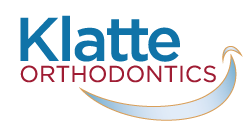
Frequently Asked Questions (FAQs)
Is a referral from my family dentist required to schedule an appointment for an orthodontic consultation?
How do I schedule an appointment for an initial consultation?
Simply call our office or send us an email ! We will be happy to schedule your appointment!
Is it too late to have braces if I am already an adult?
What will I learn from the initial consultation?
- Is there an orthodontic concern, and if so, what is it?
- What must be done to correct the problem?
- How long will the treatment take to complete?
- How much will the treatment cost?
How long will my treatment take to complete?
Do braces hurt?
How much will braces cost? Are financing options available? How does my insurance work?
Orthodontic fees depend on the complexity of the correction. We will explain the exact cost and financial options during the initial consultation. We have many financing options available to accommodate your needs, and we will review each of these with you. We will also review your insurance information, help to maximize your benefit and we will file your claims for you.
How often will I have appointments?
Appointments are scheduled according to each patient’s needs. Dr. Klatte utilizes the latest orthodontic technology, which allows orthodontic corrections to be made more efficiently than ever before. Most patients are seen every 6 to 10 weeks.
Do I continue to see my family dentist while in braces?
Are there foods I cannot eat while I have braces?
How often should I brush my teeth while in braces?
Excellent oral hygiene is a must with braces. Patients should thoroughly brush at least 3-4 times each day; after each meal and before going to bed. Once your treatment begins, we will recommend special toothbrushes, flossing aids, toothpaste and mouth rinses to help you achieve a beautiful, healthy smile.
Why should I choose an orthodontic specialist?
An orthodontist must complete college requirements before starting a four year graduate program at a dental school accredited by the American Dental Association (ADA). After dental school, at least two or three academic years of advanced specialty education in an ADA-accredited orthodontic program are required to be an orthodontist. The program includes advanced education in biomedical, behavioral and basic sciences. The orthodontic student learns the complex skills required to manage tooth movement (orthodontics) and guide facial development (dentofacial orthopedics).
Only dentists who have successfully completed these advanced specialty education programs may call themselves orthodontists.
